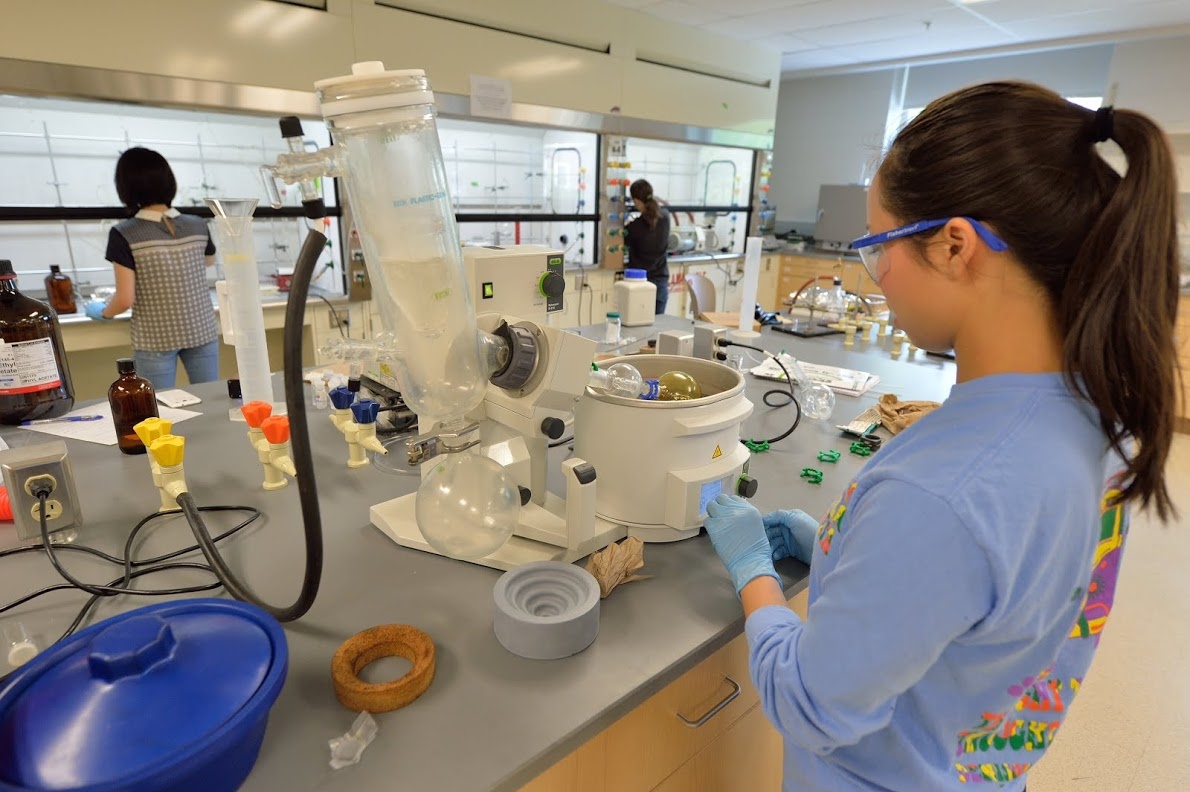While the classrooms of Ebaugh laboratories are quiet each summer, the research labs are buzzing with faculty and student collaboration on original research projects.
Depending on which lab you visit, you’ll find students synthesizing new molecules to bind proteins, modifying a bacteria’s genome to probe the cell membrane or measuring the efficacy of novel materials for solar cells. Many summer projects carry over into the school year and form the foundation of senior research thesis. The collaborative research environment each summer also contributes to student presentations at regional and national scientific meetings and faculty-student publications.
The summer research session spans ten weeks each summer. Students are funded through external grants obtained by faculty and through internal Denison funding. In addition to money for research supplies, research students receive a personal stipend and housing expenses. Most summer researchers have completed either their sophomore and junior year but each year a few first-year students jump right into research. The exact number of positions available each year depends on available funding and student and faculty matching interests.
Summer research gives students hands on opportunities to apply theory and lab practices from Denison coursework. Each week in the lab brings constant learning opportunities. Experimental successes and failures deepen students’ understanding of their experimental system and help students design project next steps. Just as important, students have ample opportunities to practice perseverance and creative problem solving as they work to move their independent projects forward. Summer is also a great time for Chemistry and Biochemistry majors to enjoy community in and outside the lab. Each week department student researchers and faculty meet for lunch to tell tales of summer lab adventures and listen to student research presentations.
Thus after spending a summer in the lab, students readily note the friendships they formed and how Ebaugh feels like home. In addition, students relish their increased confidence in “doing chemistry”. Kelsey Ulanowicz (class of 2015 from Pittsburgh, PA) explains that after two summers of research “I think more critically when designing an experiment and determining the meaning behind data I’ve collected.” Kelsey also explains another important truth familiar to research students: “the obstacles I’ve faced in lab have taught me just as much about science (if not more) than the successes have.” Patrick Keller (class of 2016 from Lexington, KY) relates that “the most valuable lesson that I learned from my summer research experience was how research is not as daunting as it seems if you get out there and go for it.”





